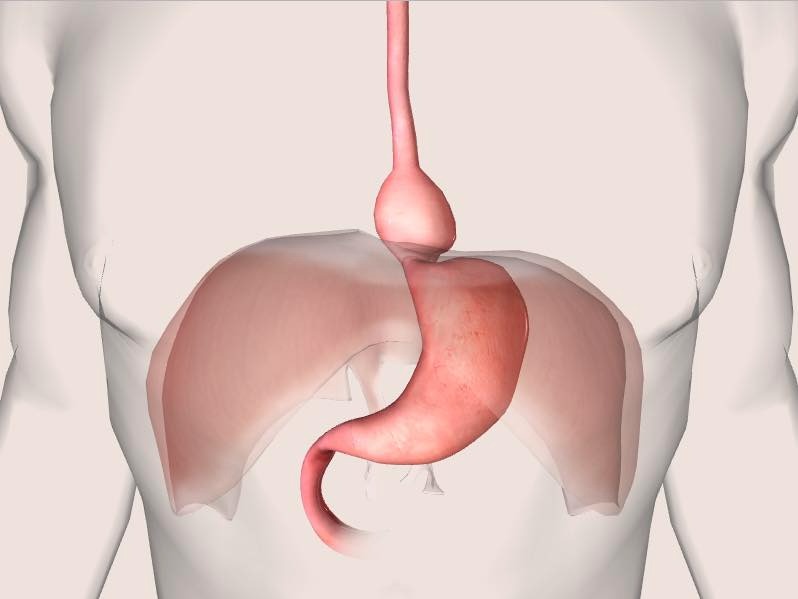A hiatal hernia is a condition in which part of the stomach pushes through the diaphragm into the chest cavity. There are two main types of hiatal hernias:
Sliding Hiatal Hernia: The most common type, where the stomach and the lower part of the esophagus slide up into the chest through the hiatus. This type is often associated with gastroesophageal reflux disease (GERD).
Paraesophageal Hiatal Hernia: Less common but more serious, where part of the stomach squeezes through the hiatus, next to the esophagus, without displacing the gastroesophageal junction. This type can cause significant health issues as the stomach can become "strangled," cutting off its blood supply.
Symptoms of a hiatal hernia vary depending on the severity and type. Some people may not experience any symptoms, especially in the early stages, while others may have noticeable issues such as:
Heartburn: Especially after eating or lying down, due to stomach acid entering the esophagus.
Regurgitation: The sensation of food or sour liquid coming up into the throat or mouth.
Difficulty Swallowing: Occurs as the herniated stomach compresses the esophagus.
Chest or Abdominal Pain: Can be severe and sometimes mistaken for a heart attack.
Belching: Frequent and uncontrollable.
The treatment of hiatal hernia depends on the severity of the symptoms and the type of hernia:
Lifestyle Changes: Avoiding meals before bed, maintaining a healthy weight, and avoiding foods that trigger reflux such as spicy foods, caffeine, and alcohol.
Medications: Over-the-counter or prescription medications such as antacids, H2 blockers, or proton pump inhibitors to manage symptoms of acid reflux.
Laparoscopic Nissen Fundoplication: A minimally invasive procedure where the stomach is wrapped around the lower esophagus to strengthen the sphincter that prevents acid reflux.
Hiatal Hernia Repair: Involves pulling the stomach back into the abdomen and making the opening in the diaphragm smaller.
Turkey has become a prominent destination for medical tourism, especially for the treatment of hiatal hernia due to the following advantages:
Experienced Surgeons: Many Turkish surgeons have extensive experience in laparoscopic procedures, which are essential for effective hiatal hernia surgery.
Advanced Medical Facilities: Hospitals in Turkey are equipped with state-of-the-art medical technologies and follow international health standards.
Cost-Effective: The cost of surgery in Turkey is often significantly lower than in Western countries, without compromising on quality.
Comprehensive Care: Many hospitals offer packages that include pre-operative and post-operative care, making it convenient for international patients.
Consult a Specialist: If you suspect you have a hiatal hernia, consult a gastroenterologist or a general surgeon specialized in hiatal hernia treatment.
Consider All Treatment Options: Discuss all possible treatment approaches with your doctor to determine the best course of action based on your specific condition.
Follow Post-Surgery Instructions: Proper care after surgery is crucial for recovery. Follow your doctor’s guidelines regarding diet, activity, and medication.
Treating hiatal hernia effectively requires a comprehensive approach that may involve lifestyle changes, medication, and possibly surgery. With the right treatment plan, most people can expect to reduce or eliminate their symptoms.
